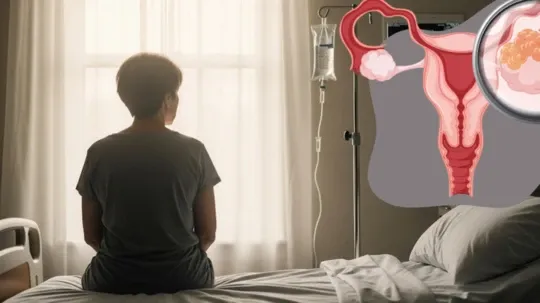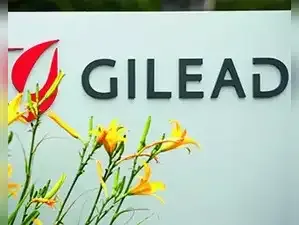‘I Thought It Was Something I Ate’, Woman Got Diagnosed With Stage 4 Ovarian Cancer After A Routine Ultrasound Revealed Terminal Illness
admin | July 15, 2025 12:22 AM CST

A 57-year-old schoolteacher from Kolkata, Ruma Sen* had spent decades standing in front of classrooms, guiding young minds with poise and patience.
But when her own body began to send quiet warnings-persistent bloating, fatigue that lingered, clothes fitting tighter than usual-she brushed it off. "I just assumed it was something I ate or part of aging," she recalls. Yet, deep down, a quiet concern stirred. And then came the ultrasound that changed everything.
A mass on her left ovary. Fluid accumulating in her abdomen. The CT scan and biopsy confirmed what no one wants to hear: Stage IV high-grade serous ovarian cancer, with metastases to her intestines and abdominal lining.
"I felt like the floor had vanished beneath my feet," Ruma says. "In that moment, the future I imagined just disappeared."
"Ovarian cancer often whispers until it roars," explained Dr. Debapriya Mondal, Ruma's medical oncologist at Apollo Cancer Centre, Kolkata. "By the time it's diagnosed, it's usually advanced. But even Stage IV isn't without hope."
This late-stage diagnosis is common with ovarian cancer, especially its most aggressive subtype-high-grade serous carcinoma. It lacks early symptoms that are easily distinguishable from benign issues like indigestion or menstrual irregularities. That's why it's dubbed the "silent killer."
Round One: Chemotherapy as the First Line of Defense
Chemotherapy began within days of diagnosis. The plan was clear: shrink the tumors to make surgery safer and more effective. The process, however, was anything but clinical for Ruma.
"The first cycle made me violently nauseous. My hair fell out in clumps. I was too weak to stand some mornings," she remembers. Despite the toll, the treatment was working. By the third cycle, imaging showed significant tumor shrinkage.
"Chemotherapy is brutal," Dr. Mondal admits. "But when the scans show tumors shrinking, it's our signal that we're fighting back-and winning ground."Round Two: A Critical Turning Point Surgery
Ruma's next hurdle was interval debulking surgery, a complex procedure to remove all visible tumors, followed by HIPEC (Hyperthermic Intraperitoneal Chemotherapy)-a method where heated chemotherapy is delivered directly into the abdominal cavity during surgery.
"It was the toughest part," Ruma says. "I woke up in ICU with tubes everywhere. My abdomen felt like it was on fire." Recovery was grueling. Ten days in the hospital marked by small but vital victories: sipping water, standing unaided, breathing without assistance.
"HIPEC is not for every patient," Dr. Mondal says. "But in selected cases like Ruma's, it increases the chances of a long remission or even a cure."Round Three: Genetic Testing and Personalized Medicine
As Ruma regained strength, her care team ordered homologous recombination deficiency (HRD) testing, a genomic analysis that helps determine how well a tumor repairs its DNA. The results revealed a germline BRCA1 mutation, a known genetic driver of ovarian cancer.
"This changed everything," Dr. Mondal explains. "When tumors carry this mutation, we can use targeted maintenance therapy, such as PARP inhibitors, which drastically reduce the risk of recurrence."
For Ruma, the discovery was both empowering and alarming. "I now had a new weapon against my cancer. But I also worried about what it meant for my daughters."
She completed three more cycles of chemotherapy and transitioned to oral PARP inhibitors-medications designed to exploit her cancer's genetic vulnerabilities. For the next two years, she remained under strict oncologic surveillance, with regular scans and bloodwork to track any signs of recurrence.
Ruma's diagnosis didn't just change her life-it changed her family's trajectory.
Her two daughters, Megha** and Ananya**, underwent genetic counseling and testing. Megha, the elder at 35, tested positive for the same BRCA1 mutation. "It was a gut punch," Megha says. "But I felt lucky to know."
After consulting with specialists, she opted for risk-reducing salpingo-oophorectomy (RRSO)-a preventive surgery to remove her ovaries and fallopian tubes. "It meant early menopause. But it also meant I was taking control of my future," Megha explains.
According to Dr. Mondal, this kind of cascade testing-where family members of patients with genetic mutations are screened-is vital. "We now have tools not just to treat cancer, but to prevent it. Megha's decision may have significantly lowered her lifetime risk of ovarian and breast cancer."
Today, Ruma is in clinical remission. She has resumed teaching, started leading yoga sessions for cancer survivors, and advocates for genetic testing and early detection. "I used to fear my body," she admits. "Now I listen to it. I take care of it."
She also speaks publicly about her cancer journey, helping dismantle the stigma and fear surrounding a disease that affects nearly 300,000 women worldwide each year, according to the World Health Organization.
"We are in a new era of precision oncology," Dr. Mondal emphasizes. "We are no longer limited to one-size-fits-all treatments. Every tumor has a story written in its DNA-and we're learning how to read it."Why It Is Important To Listen to Your Body?
Ruma's story is more than a personal victory. It's a real-world example of how modern oncology is evolving-from late diagnosis to targeted intervention, from suffering in silence to survivorship with purpose. Here's what it tells us:
- Listen to your body, even when the symptoms seem minor.
- Early diagnosis remains rare, but genetic insights can improve long-term outcomes.
- Precision medicine-like HRD testing and PARP inhibitors-is rewriting how we approach advanced cancer.
- Genetic counseling empowers entire families, not just patients.
- And most importantly, survival is possible, even in Stage IV.
READ NEXT
-
114-yr-old veteran marathon runner Fauja Singh dies in road accident in Jalandhar

-
SC slams cartoonist Hemant Malviya over ‘immature’ post targeting PM Modi and RSS

-
Soccer: Club World Cup serves as 2026 dry run amid heat and pitch concerns

-
WHO recommends Gilead's twice-yearly injection for HIV prevention

-
Retail inflation hits over 6-year low of 2.10% in June; WPI turns negative
